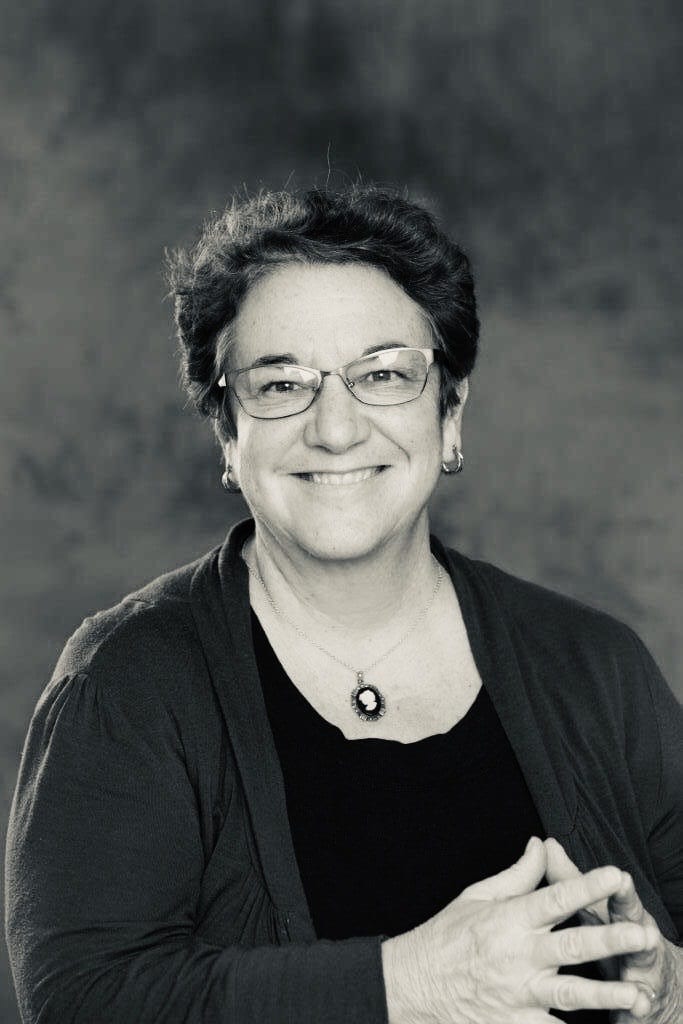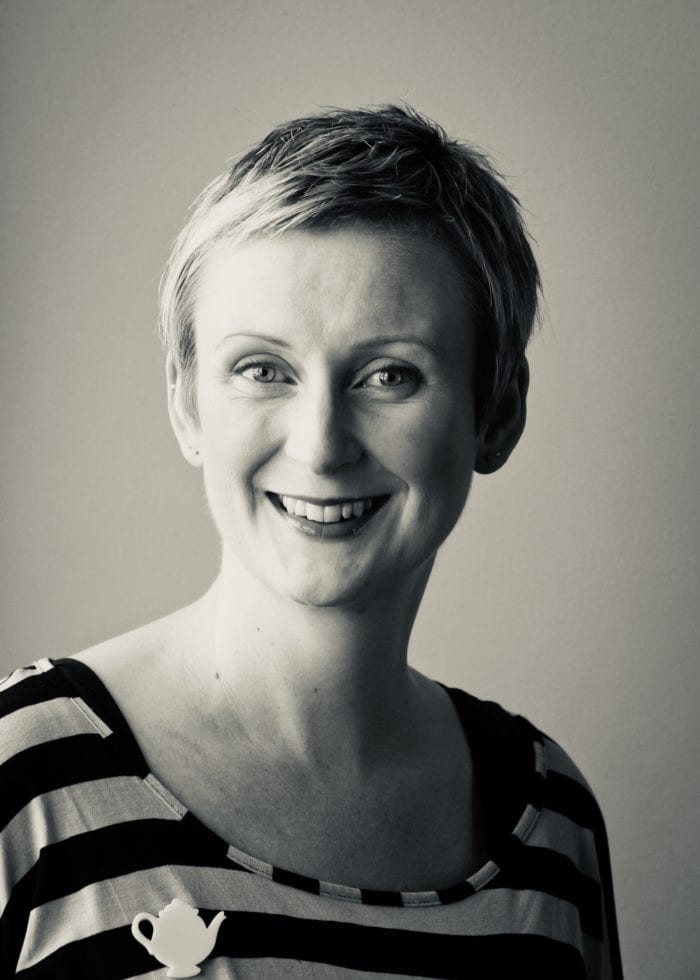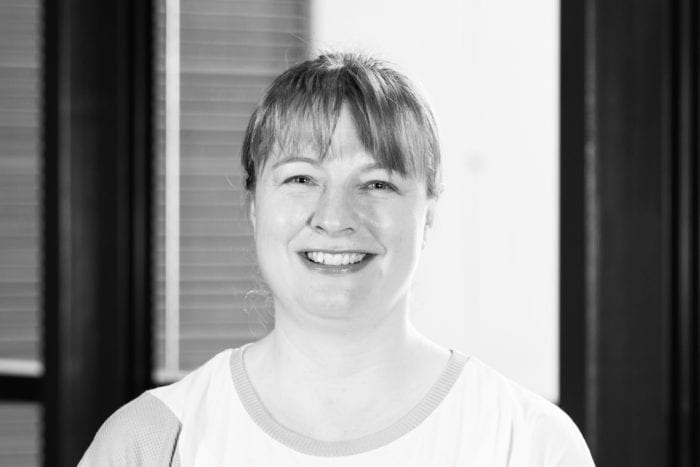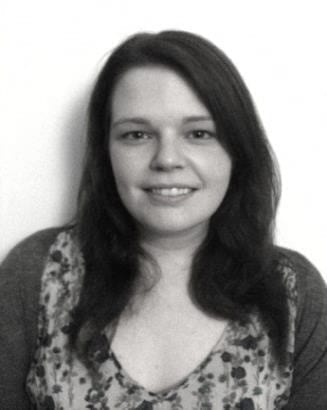Diabetes Ireland Conference & Exhibition 2020 (DICE)
for Medical Health Professionals
21st February 2020
Croke Park Conference Centre Dublin
Parth Narendran Reader/Consultant, University of Birmingham and The Queen Elizabeth Hospital Birmingham
Parth Narendran is a Reader at the University of Birmingham, and a Consultant in Medicine at Queen Elizabeth Hospital, Birmingham. He qualified from Kings College London and undertook his post-graduate clinical training in Manchester, Bristol and London.
He conducted his PhD studies on the immune mechanisms underlying the development of type 1 diabetes whilst at Bristol. He was subsequently awarded a JDRF post-doctoral fellowship in Melbourne, Australia. He took up his current post at the University of Birmingham in 2005.
Parth’s clinical interests focus on type 1 diabetes and he leads the type 1 services at the Queen Elizabeth Hospital, Birmingham. These include a structured education programme called Dose Adjustment for Normal Eating (DAFNE), the adolescent transition and insulin pump (including intra-peritoneal insulin pump), and islet/pancreas transplant services. Supporting patients to exercise is a core interest of the service.
Parth’s research interests also focus on type 1 diabetes. He has a long-standing interest in preserving the function of insulin producing pancreatic beta cells in type 1 diabetes.
Over the years he has been fortunate to receive funding from Diabetes UK, JDRF, DRWF, Wellcome Trust, MRC, The Insulin Dependent Diabetes Trust as well as the National Institute for Health Research.
Parth’s talk at DICE will cover:
Research into Prevention of Type 1 Diabetes
 Dr Rosanne Burson DNP, ACNS-BC, CNE, CDE, FAADE
Dr Rosanne Burson DNP, ACNS-BC, CNE, CDE, FAADE
Dr Rosanne Burson is an associate professor at the University of Detroit Mercy in Detroit, Michigan. She is currently a Fulbright Scholar at the Centre for e-integrated Care, Dublin City University, and exploring advanced practice nursing informatics competencies, chronic disease management and patient self-management.
Rosanne is a Certified Diabetes Educator and a Fellow of the American Association of Diabetes Educators. She has practiced, written and presented around the topic of self-management and chronic disease for many years.
Dr Burson’s other interest is practice scholarship and the uptake of the Doctor of Nursing Practice (DNP) degree in health care organizations. She has been the DNP Program Coordinator Detroit Mercy, teaching and working with doctoral students. She has also written and presented widely on this topic, as well as consulting at universities around the United States. She is co-editor of an acclaimed text book, “The Doctor of Nursing Practice Project, A Framework for Success”, which is in its 3rd edition.
Roseanne’s talk at DICE will cover:
Lessons Learned from the Management of Type 2 Diabetes
 Siobhan Meehan Clinical Nurse Specialist
Siobhan Meehan Clinical Nurse Specialist
Siobhan Meehan is a Clinical Nurse Specialist in Diabetes for over eighteen years. She works in Primary Care Counties Longford/ Westmeath. Prior to this post she worked in the Diabetes Day Centre in St James Hospital Dublin.
Siobhan completed a higher diploma in Diabetes in UCD in 2002.She works predominately in the community with complicated people with Type 2 Diabetes. She works closely with the multi disciplinary diabetes team in Regional Hospital Mullingar.
Siobhan is passionate about diabetes education offering support to general practitioner and practice nurses in Longford and Westmeath.
For the last twelve years she has been is involved in delivery of Certificate in Diabetes Nursing providing training to both hospital and community nurses through Regional Centre for Nurse Education, Tullamore.
In 2008 Siobhan received training in group education programme for type 2 diabetes called DESMOND. She co-facilitates this programme with community dieticians in Longford Westmeath.
Siobhan is keen to provide good quality care to her patients. She has been involved in numerous audits in the midlands helping to enhance the delivery of diabetes care in this area. In 2018 The Midlands Diabetes Structured Care Programme won QIC (Quality in Care) Special Judges award in UK for the delivery of care from 1998- 2018.
Siobhan’s talk at DICE will cover:
Improving Diabetes Care Delivery and Reducing Complications in Primary Care
 Dr. Sharleen O’Reilly (BSc, PhD, RD)
Dr. Sharleen O’Reilly (BSc, PhD, RD)
Sharleen is an Assistant Professor of Nutrition and Food Science at the School of Agriculture and Food Science in UCD. In 2019 Sharleen was awarded Irish Nutrition and Dietetic Institute ‘Research Dietitian of the Year’ and she works at the interface of research, teaching and practice in public health nutrition. She graduated from Trinity College Dublin with a degree in Human Nutrition and Dietetics and her PhD.
Sharleen worked as a dietitian in Ireland andand the UK before moving to Australia where she was a Senior Lecturer at Deakin University. During that time, she held two prestigious Australian National Fellowships and Advanced Accredited Practising Dietitian status, which <1% Australian dietitians hold.
Now working at UCD, Sharleen is an active member of the UCD Institute of Food and Health and UCD Perinatal Research Centre. Her current research interests lie in research translation and how chronic disease prevention and management can be better implemented in the real world.
She is an investigator on over €7M active research funding at present and currently leads a €4.4M EU Horizon2020 implementation project looking to improve mother and baby health in the first 1000 days.
In addition, Sharleen holds an Adjunct Professor position at the Public Health Foundation of India and Adjunct Senior Clinical Lecturer at Deakin University in Australia. She is the Programme Director for the BSc Human Nutrition at UCD and a member of the European Federation of Associations of Dietitians Research and Evidence-Based Practice Committee as well as the Nutrition Society (Irish Section) Committee.
Sharleen’s talk at DICE will cover:
Improving Health after Gestational Diabetes – Where is the Research up to?
This presentation will focus on providing an update on what the research is telling us about the health of women and babies after gestational diabetes. It will also look at diabetes prevention research that is either on-going or recently completed to see what we can do to better support women and their families to engage in healthy eating and physical activity.
Professor Seán F. Dinneen, MD, MSc, FRCPI
National Lead for the Diabetes Clinical Programme, HSE
Consultant Endocrinologist, Galway University Hospitals, Galway, Ireland
Professor of Diabetic Medicine, National University of Ireland, Galway, Ireland
Seán Dinneen graduated from University College Cork Medical School. After a period of postgraduate training and work experience in the USA (Mayo Clinic), Canada (McMaster University) and the UK (Addenbrooke’s Hospital) he returned to Ireland as an Academic Endocrinologist.
He was part of successful bids that brought a School of Podiatry and a Clinical Research Facility to NUI Galway. He served as Head of the School of Medicine from 2013 to 2016. In June 2016 he was appointed National Lead for the Diabetes Clinical Programme of the HSE and received a Personal Professorship from NUI Galway.
His professional interests include developing and evaluating programmes of self-management education and support for people living with diabetes, developing optimal models of community-based diabetes care and understanding the diabetic foot. He is a Regional Editor (for UK and Ireland) with Diabetic Medicine, the journal of Diabetes UK and is Clinical Lead for Schwartz Rounds in Galway University Hospitals.
Seán’s talk at DICE will cover:
An Update from the National Clinical Programme for Diabetes
Dr Kate O’Neill post-doctoral researcher in the School of Public Health, University College Cork (UCC)
Kate obtained a BSc in Public Health and Health Promotion in 2013 and a MPhil in Epidemiology at Cambridge University in 2015.
Under the supervision of Professor Patricia Kearney in UCC, Kate completed her PhD in 2018 funded by a HRB Research Leader Award titled “Improving Care for People with Diabetes: A Population Approach to Prevention and Control”.
Kate’s PhD research explored the economic burden of diabetes and the implementation of cost-effective strategies in Ireland.
Kate is currently working with national stakeholders to develop robust and up-date evidence on the epidemiology of diabetes and diabetes-related complications in Ireland. In collaboration with the ESPRIT research team, Kate is also leading a component of a large scale mixed-methods evaluation of the National Clinical Programme in Diabetes. Kate’s research interests lie in the generation of epidemiologic and economic evidence to inform public health policy.
Kate’s talk at DICE will cover:
The Economic Burden of Diabetes
Caroline Conneely is National Decontamination Advisor for Acute and Primary Care and a Quality Improvement Advisor working with the HSE National Quality Improvement Team
Caroline is a Nurse by profession and worked as senior Nurse in the Emergency Department, Intensive Care, and Orthopaedics. Caroline has a post Grad in Infection Prevention and Control, an MSc in Medical Device Decontamination Science and Diploma in Leadership and Quality Improvement.
Caroline is a Quality Improvement Coach; a qualified Lead Auditor and associate lecturer with the Dublin Technology University Tallaght.
Caroline is leading on several National Quality Improvement Projects including education for sterile service, primary care and endoscope decontamination practitioners and has developed a National Foundation Programme for Quality Improvement in Decontamination Practice working with decontamination teams to develop the knowledge and skills they need to improve their services.
Caroline supports the development and implementation of National Standards in Ireland is a registered test person for sterilizers and recently gained certification in Lean Green Belt methodologies.
Dr Mark Davies, Consultant Clinical Psychologist, Belfast Health and Social Care Trust
Mark graduated from Queen’s University Belfast in 1998 with a doctorate in Clinical Psychology. Prior to this he worked as a Research Psychologist at St George’s Hospital Medical School, University of London.
Mark will be delivering the same presentation twice at DICE so there is a second opportunity to hear him if it clashes with another talk you are interested in.
Why being a healthcare professional is like having diabetes and how to reduce burn-out
He will be discussing how having diabetes is psychologically stressful. Many healthcare professionals also experience high levels of stress. This talk will focus on psychological burn-out and how we can reduce its impact on people diagnosed with diabetes and on ourselves.
 Dr Jorge Palacios is a Clinical Researcher for SilverCloud Health and clinical fellow at the e-mental health research group, at the School of Psychology, Trinity College Dublin. His research focus is on delivering internet-based psychological therapy to diverse clinical and non-clinical populations. He is especially interested in integrating behavioural, mental, and physical health, as well as improving engagement and effectiveness of online psychological therapy within various settings.
Dr Jorge Palacios is a Clinical Researcher for SilverCloud Health and clinical fellow at the e-mental health research group, at the School of Psychology, Trinity College Dublin. His research focus is on delivering internet-based psychological therapy to diverse clinical and non-clinical populations. He is especially interested in integrating behavioural, mental, and physical health, as well as improving engagement and effectiveness of online psychological therapy within various settings.
Dr. Palacios completed his PhD in Psychological Medicine, at the Institute of Psychiatry, Psychology, and Neuroscience (IoPPN) in London, where he worked on trajectories of depression and anxiety symptomatology in Coronary Heart Disease. He was recognised with the Young Investigator of the year Award from Elsevier and the European Association of Psychosomatic Medicine, presented in Barcelona in 2017. Prior to his PhD, Dr. Palacios obtained his medical degree at the National Autonomous University (UNAM) in Mexico City, and won a scholarship to undertake a Masters in Psychiatric Research from King’s College London, which he passed with distinction in 2012.
This is a brief overview of the talk:
In moving towards a model of supported self-management for type 2 diabetes, lifestyle changes are a key driver of the improved health of this population. Diabetes-related distress is common and closely related to glycemic control, in addition to impacting quality of life and creating a barrier to lifestyle changes. Disease management strategies can be successfully delivered via online platforms, which create an additional source of material to change behaviours and manage distress related to the chronic disease. This talk will touch briefly on the potential benefits of internet-delivered therapies in patients with diabetes, and the challenges which must be overcome to maximise this potential.
Colin Dunlevy , PhD, MISCP
Colin has worked in the weight management service at St Columcille’s Hospital, Loughlinstown since 2008. In this role he is involved in the management of obesity related co-morbidities, pain and behavioural change.
Colin graduated as a physiotherapist from Trinity College Dublin in 2000 having had a previous career in information technology. Postgraduate research in the area of joint kinematics was continued at Trinity and a PhD was awarded in 2005. He has worked in AMNCH and the Central Remedial Clinic (CRC) and continues to work in musculoskeletal private practice and as a team physiotherapist with the Football Association of Ireland.
Colin’s talk at DICE will cover:
Exercise & Type 2 Diabetes – Punishment or Pleasure
Dr. Catherine Dolan, M.B. BCh, BAO, MRCPsych, PGrad Dip Clin Ed, is a Consultant in Old Age Psychiatry in Sligo Leitrim Mental Health Services.
Catherine obtained her medical degree from National University of Ireland, Galway (NUIG). She completed a two year clinical fellowship in the National Memory Clinic, Dublin 2015 and a diploma in Clinical Education in NUIG in 2017.
Catherine’s major research interest is in the link between diabetes, depression and dementia.
In 2020, she successfully completed a Medical Doctorate (MD) degree, Trinity College Dublin on the topic of Diabetes and Brain Health. Her MD research project included a study, in conjunction with Public Health Medicine colleagues, exploring awareness among the general public, professional and patient groups of the link between diabetes and brain health and she has a number of peer-reviewed publications on this topic.
She is currently a co-investigator on an INTERREG funded (>700k euro) cross-border, clinical trial, BRAIN-Diabetes, aimed at developing a lifestyle intervention focused on dementia prevention in older adults with Type 2 diabetes, as well as a number of other studies aimed at improving the mental and cognitive health of older adult populations.
Catherine is also a member of the Dementia Risk Reduction National Working Group.
The title of the talk is
‘Diabetes and Dementia: A Bittersweet Link’
The talk will summarise the current evidence for the link between diabetes, cognitive impairment and dementia and potential future impact on older individuals and health resources. It will also touch on potential strategies for brain health protection.
Grainne Flynn and Tomas Mahony
Title: DIY Diabetes Technology: What and Why
Grainne has been living with diabetes since 1993 and began volunteering with Diabetes Ireland in 2007 when she helped to set up Diabetes Support Groups in Clare and Public Information Events on Diabetes.
Gráinne is also one of the founding members of Thriveabetes; the first Irish type 1 diabetes conference organised by people with type 1 diabetes whose mission is to Inform, Motivate, and Inspire all people living with diabetes.
She advocates passionately for the value of people with diabetes support and learning from each other through sharing lived experiences. She also writes a blog, BloodSugarTrampoline.com which is a combination of her personal diary about living with type 1 diabetes in Ireland and a way to share information with others to help them on their own diabetes journeys.
Social Media Links;
Personal Blog; Blood Sugar Trampoline – https://bloodsugartrampoline.com/
Thriveabetes.ie
Twitter handle – @BSugrTrampoline
Facebook page – https://www.facebook.com/BloodSugarTrampoline/
LinkedIn Profile – https://www.linkedin.com/in/grainneflynnblogger/
Tomás Mahony
Tomás Mahony, BEng is Chartered Electrical Engineer who has worked in the Power Industry since qualifying from UCC in 1991. He was diagnosed with type 1 diabetes in 1999.
Tomás lives in Co. Waterford with his wife Tara and four teenage boys. He has always been physically active and has more recently taken up endurance events involving running, cycling and swimming. He became interested in adopting a DIY Artificial Pancreas Systems (APS) to simplify life with diabetes in 2018. He has since then attended DIY build-and-use workshops in Manchester and London. He got the DIY APS fully up and running in late 2018 and has not looked back. He is grateful for all the help that he has received in setting up this closed loop insulin delivery system and is happy to ‘pay it forward’.
Overview:
Title: DIY Diabetes Technology: What and Why
Do-it-yourself diabetes technology involves a growing community of people worldwide with diabetes creating their own solutions to allow real time and remote access to a Continuous Glucose Monitoring data. This data can be viewed on personal websites, or apps and widgets available for smartphones. Additionally, the data can be fed into an automated (closed loop) insulin delivery systems to help maintain optimal blood glucose level.
This presentation will give a brief overview of DIY Diabetes Technology. It considers why people with diabetes would consider using it from the perspective of two who have already adopted the technology into their everyday lives.
Cathy Dardis (MSc, PG Cert, BSc Hons, RGN)
Ophthalmic Nurse Practitioner/ Grader NIDESP
Belfast Health and Social Care Trust/ NIDESP
Cathy is currently working as an Ophthalmic Nurse Practitioner for the Macular Service in Belfast. Cathy started her ophthalmic career in the Royal Victoria Hospital, Belfast, working in an Eye Outpatients’ department/ Eye casualty before moving to an Ophthalmology surgical ward. In 2009, she moved to London and joined the Medical Retina team at Moorfield’s Eye Hospital for over 4 years.
Since returning to Northern Ireland, Cathy has been working as a Nurse Specialist within Medical Retina as well as a grader for the Northern Ireland Diabetic Eye Screening Programme. Cathy’s areas of clinical interest/expertise include Macular degeneration, Retinal Vein Occlusions, Diabetic Eye disease, developing advanced nursing roles within ophthalmology, quality improvement in healthcare and diabetic eye screening.
Treatment of Diabetic Eye Disease; the Extended Nursing Role within the Service
Overview
This talk will explore the role of ophthalmic nursing in the treatment of Diabetic eye Disease. It will give an overview of the role of Ophthalmic Nurse Practitioners and the potential role advanced nursing practice can play in preventing blindness due to Diabetes.
Diarmuid Smith graduated from UCD in 1994. Completed his MD thesis in Kings College London under the supervision of Professor Stephanie Amiel. Appointed consultant to Beaumont Hospital in 2005 and is an Associate Professor of Clinical Medicine in the RCSI.
Diarmuid was the HSE Clinical lead for diabetes between 2011 to 2013 and was the Secretary of the Irish Endocrine Society between 2015 to 2019. Published over 100 articles in international peer reviewed medical journals.
The Management of Cardio Renal Risk in Type 2 Diabetes: Recent Updates
Overview
The lecture will look at the association between cardiac and renal disease and diabetes and recent trials exploring the effects of newer agents in the management of type 2 diabetes and their effect on cardiac and renal function.
Dr Mary Flynn is a registered dietitian and is Chief Specialist in Public Health Nutrition at the Food Safety Authority of Ireland.
Her work involves the scientific development of guidelines on healthy eating and infant feeding. She is also involved in several obesity prevention initiatives including the reformulation of food towards healthier options that are lower in sugar, fat and calories.
Her work on calorie menu labelling included the development of MenuCal – a calorie calculator and allergen management system for Food Businesses, which is now also used in Northern Ireland and Scotland. Currently Mary chairs a Working Group at Codex Alimentarius (WHO and FAO of the UN) on the development of nutrient reference values for infants and young children for food labelling.
Previously Mary spent many years working in clinical practice, research and academia in Ireland, Canada and the Middle East. She has published over 100 scientific papers and her work on prevention and treatment of childhood obesity has been highlighted by the WHO. Her previous international appointments include membership of the Expert Advisory Panels for Health Canada’s Food Guide in both 2006 and 2019; and Adjunct Professorships at The University of Alberta and University of Calgary in Canada.
In 2014, Mary was awarded the inaugural medal for excellence in Public Health Nutrition by the Nutrition Society in the UK. She was appointed as a member of the first Healthy Ireland Council by the Minister for Health and has been a Visiting Professor at the Ulster University, Northern Ireland since 2012.
Sugar vs. Fat in Diabetes: highlighting what’s most important in food-based advice
Overview
“Know Diabetes by Heart” describes what’s most important about food-based approaches to living well with diabetes. Diabetes is a prime risk factor for cardiovascular disease, which also leads to complications such as retinopathy, nephropathy, peripheral vascular disease, stroke, and coronary artery disease.
While wise food choices that include a good mix of ‘healthy fats’ and minimal intake of ‘unhealthy fats’ are critical for reducing cardiovascular risk, this is often overlooked in the effort to manage blood sugars.
Finding foods that ‘mostly work’ to control blood sugars generally involves a relentless trial of food choices with a focus on sugar and all other forms of carbohydrate.
Emerging evidence shows how dietary intervention can reverse pre-diabetes and delay the onset of type 2 diabetes. Such intervention includes an initial stringent weight reduction phase followed by weight maintenance.
The long-term diet that appears most promising for diabetes management is a food pattern where overall carbohydrate intakes are reduced, and attention is paid to type of carbohydrates and fats included so that long-term cardiovascular disease risks are minimised.
This paper explores the food-based healthy eating guidelines in Ireland and describes areas where such advice needs to be emphasised and adapted for people living with diabetes. This has implications for healthy eating for many adults in Ireland as high rates of overweight and obesity rise with age and affect more men than women, which increase our tendency towards abdominal fat distribution and metabolic syndrome. This increases risk of cardiovascular disease and type 2 diabetes on a population basis.
 Tara Kelly Lead Dietitian – Diabetes Digital Media & Honorary Clinical Fellow
Tara Kelly Lead Dietitian – Diabetes Digital Media & Honorary Clinical Fellow
Tara Kelly registered dietitian based in the UK. She has worked across a variety of NHS clinical settings including diabetes, bariatric surgery and weight management.
Tara has a particular interest in the management of type 2 diabetes using intensive lifestyle interventions. She worked as a research associate on the DiRECT study in Newcastle University.Tara is the Lead Dietitian for Diabetes Digital Media. DDM provide scalable digital health solutions for people with diabetes and chronic disease
Tara’s talk at DICE will cover:
Type 2 Diabetes Management using a Digital Behaviour Change Platform – Gro Health
Dr McDonnell is a Consultant in Paediatric Endocrinology & Diabetes at Children’s Health Ireland at Temple St & Tallaght University Hospitals.
Ciara is the Associate Dean of Paediatrics Examinations at RCPI and Senior Clinical Lecturer in Paediatrics at Trinity College Dublin & RCSI. Dr. McDonnell has a sub-specialist interest in bone health and is the joint lead of the Centre for Rare Paediatric Bone Disorders based at Temple St with Mr Connor Green.
She has just completed her tenure as paediatric representative of the Irish Endocrine Society and is the Convenor for the European Society of Paediatric Endocrinology Bone & Growth Plate Working Group.
Ciara’s talk at DICE will cover:
Bone Health and its Implications with Diabetes
 Gerard Colleran is a Senior Lecturer in Microbiology at the Technological University Dublin. He is committed to the provision of education to health-services staff in the effective management and control of healthcare associated infection.
Gerard Colleran is a Senior Lecturer in Microbiology at the Technological University Dublin. He is committed to the provision of education to health-services staff in the effective management and control of healthcare associated infection.
He lead the design, development and delivery of a number of national, online- and blended-educational courses for health-services staff, focusing on the science and practice of Medical Device Decontamination. These programs were developed in collaboration with the Health Services Executive (HSE) and specialist teams within hospitals, primary care centres and the medical device industry.
Gerard completed a BSc and PhD in Microbiology at NUI Galway, where he specialised in the development of rapid diagnostics to detect toxic spore-forming bacteria. He joined the Institute of Technology Tallaght Dublin (now the Technological University of Dublin (TU Dublin)) in 1999 and was recently promoted to Senior Lecturer. He has previously worked as an analyst at the DNA Diagnostics Laboratory, National Diagnostic Centre Galway and subsequently as Microbiologist at Olympus Diagnostica GmBH before joining the University.
Gerard’s talk at DICE will cover:
Online education in decontamination practice for Primary Care.
Rajiv Pandey finished his BSc (Genetics) from the University of California, Davis. He then completed his medical degree in University College Dublin in 2012.
Currently, he is a second year Diabetic RetinaScreen research fellow studying the screening programme. He is interested in measuring the impact of screening programme and studying the treatments provided by Diabetic RetinaScreen.
Diabetic RetinaScreen: 5 years of screening and an update on treatment of diabetes related eye conditions in Ireland.
Overview of talk:
Screening programmes have been proven to be an effective tool in reducing the rate visual impairment in a diabetic cohort. In Ireland, the Diabetic RetinaScreen diabetic retinopathy screening programme began annual retinopathy screening of people living with diabetes since 2013. To date, 5 rounds of screening have been completed.
I will be talking about diabetic retinopathy screening process and screening programme in Ireland.
Then we will look into the profile of patients referred with retinopathy and maculopathy over the last 3 years. And also, share some current research work being conducted into the treatment outcomes of patients who have received treatment.














